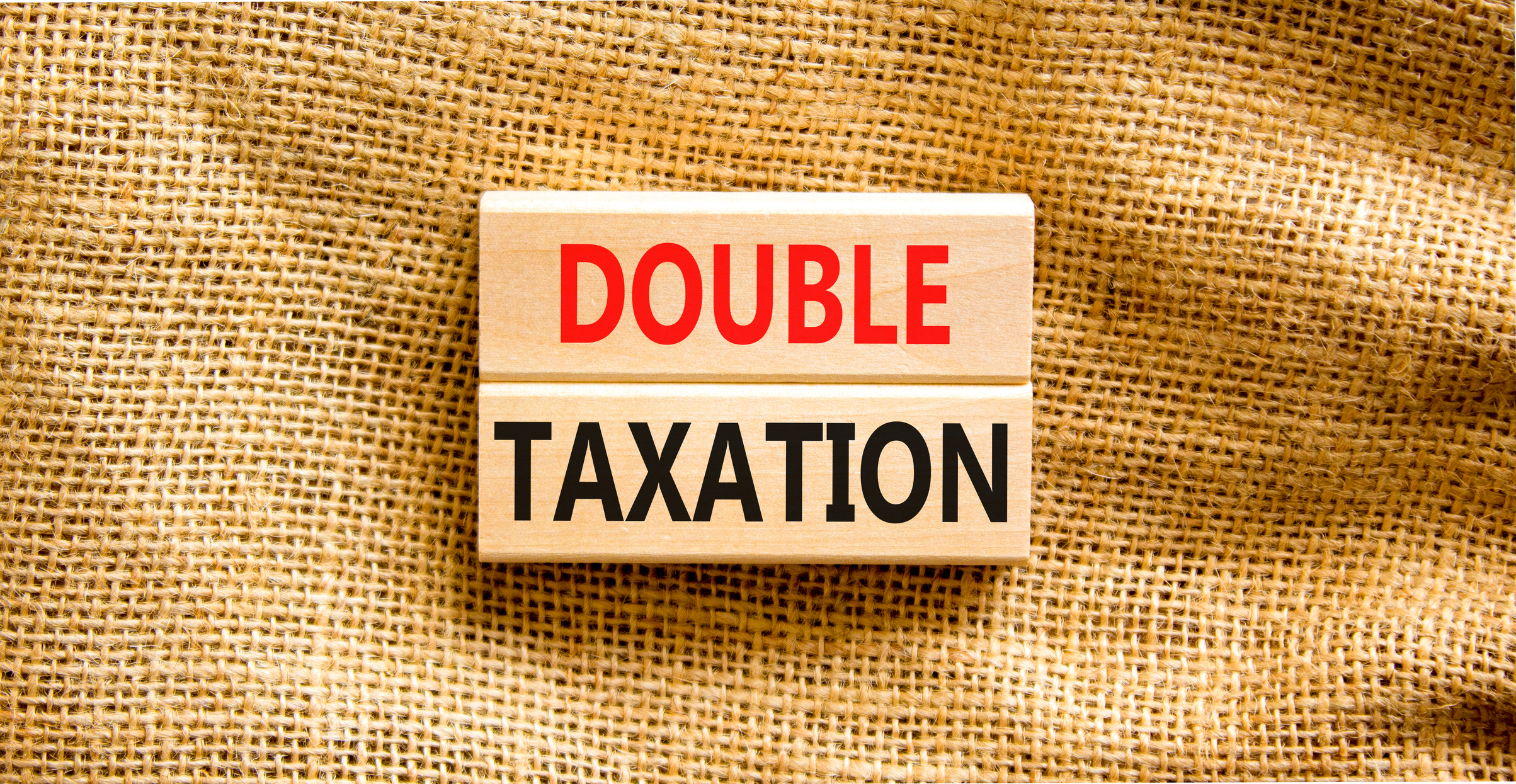The Most Tax-Friendly States for Investing in 2025 (Hint: There Are Two)
Living in one of these places could lower your 2025 investment taxes — especially if you invest in real estate.


Profit and prosper with the best of Kiplinger's advice on investing, taxes, retirement, personal finance and much more. Delivered daily. Enter your email in the box and click Sign Me Up.
You are now subscribed
Your newsletter sign-up was successful
Want to add more newsletters?

Delivered daily
Kiplinger Today
Profit and prosper with the best of Kiplinger's advice on investing, taxes, retirement, personal finance and much more delivered daily. Smart money moves start here.

Sent five days a week
Kiplinger A Step Ahead
Get practical help to make better financial decisions in your everyday life, from spending to savings on top deals.

Delivered daily
Kiplinger Closing Bell
Get today's biggest financial and investing headlines delivered to your inbox every day the U.S. stock market is open.

Sent twice a week
Kiplinger Adviser Intel
Financial pros across the country share best practices and fresh tactics to preserve and grow your wealth.

Delivered weekly
Kiplinger Tax Tips
Trim your federal and state tax bills with practical tax-planning and tax-cutting strategies.

Sent twice a week
Kiplinger Retirement Tips
Your twice-a-week guide to planning and enjoying a financially secure and richly rewarding retirement

Sent bimonthly.
Kiplinger Adviser Angle
Insights for advisers, wealth managers and other financial professionals.

Sent twice a week
Kiplinger Investing Weekly
Your twice-a-week roundup of promising stocks, funds, companies and industries you should consider, ones you should avoid, and why.

Sent weekly for six weeks
Kiplinger Invest for Retirement
Your step-by-step six-part series on how to invest for retirement, from devising a successful strategy to exactly which investments to choose.
After spending time scrutinizing financial markets and Fed rates, the last thing you probably want to think about is how much the tax man will take from your earnings.
But tax planning while investing is crucial. Not only can you minimize federal taxes through strategies like tax-loss harvesting, but if you live in a low-tax state, you might reduce investment taxes on your passive income.
So here are two states that could give investors a “tax-friendly” edge in the marketplace — should you decide to move.
From just $107.88 $24.99 for Kiplinger Personal Finance
Become a smarter, better informed investor. Subscribe from just $107.88 $24.99, plus get up to 4 Special Issues

Sign up for Kiplinger’s Free Newsletters
Profit and prosper with the best of expert advice on investing, taxes, retirement, personal finance and more - straight to your e-mail.
Profit and prosper with the best of expert advice - straight to your e-mail.
The most tax-friendly states for investing
To determine the “most tax-friendly states for investing,” Kiplinger first ranked each state based on three key factors.
First, only states that don’t tax capital gains, income taxes, interest, or dividends were considered. Of those eight, Kiplinger selected the two states with the lowest effective property tax rates.
Property taxes were based on the most recent data provided by ATTOM Data Solutions, which surveyed property tax rates from 84.9 million U.S. single-family homes.
Lastly, state and local sales tax rates were referenced from the most recent dataset issued by the Tax Foundation.
But no matter where you move, federal income taxes will still apply.
Best states for investors who hate paying taxes in 2025
Nevada and Tennessee.
Many types of state taxes are either low or nonexistent in Tennessee and Nevada, making these two the most tax-friendly for investing in 2025.
Here are just a few reasons why Nevada and Tennessee topped our list:
- There are no individual income taxes in either state. (That includes wages, retirement distributions, and investment income on capital gains, interest, or dividends.)
- Property taxes are about half the national average of .90%. Both Tennessee and Nevada have relatively low effective property tax rates of .44% and .48%, respectively, according to ATTOM.
- Neither Tennessee nor Nevada has state-level inheritance or estate taxes. Without paying so-called state “death taxes,” you could pass on more investment wealth to your heirs.

Best low-tax states to invest in real estate, rental property, and other investment buys
However, choosing the state that offers the most potential tax benefit may depend on the type of investments you hold. For example, many types of investments generally reap similar state tax benefits regardless of whether you live in Tennessee or Nevada.
So, when it comes to naming the “most tax-friendly states for investing,” Kiplinger selected two primary types of investments: real estate and collectibles.
Your investment choices and the duration of those investments might lead you to prefer one state over another as the most "tax-friendly" for your specific investment strategy.
For instance:
- Tennessee could offer more state tax benefits to landlords than Nevada. Not only does Tennessee have a slightly lower property tax rate compared to Nevada, but the Volunteer State also has a lower overall median property tax bill of $1,695 (Nevada’s is $2,660), as reported by Kiplinger.
- This means you might save on state property taxes when renting out long-term properties (more than 180 days). (Depending on the specific geographic area, of course.)
- However, Tennessee is also one of the states with the highest sales tax rates in the U.S. Investors could pay up to 9.75% in combined state and local sales taxes, per the Tax Foundation. This includes large investments such as boats, cars, short-term rentals, and even some essential living expenses, like clothing.
- On the flip side, Nevada's maximum sales tax rate is 8.375%. This translates to potential savings of up to $1.37 per $100 spent on purchases in Nevada compared to those in Tennessee. Plus, Nevada has no statewide short-term rental tax, meaning state taxes on vacation rentals can be lower compared to Tennessee.*
*Note: While there is no statewide short-term rental tax in Nevada, counties and cities may enact local tax rates and fees.
Is Nevada or Tennessee a good place to live?
Before you pack your bags for a move to Tennessee or Nevada, there are other important factors to consider.
Kiplinger’s ranking considered state tax burdens for investors; however, you may want to research other key considerations like cost of living, crime rates, and political climate before relocating.
- For example, Nevada is generally considered a “business-friendly” environment, with no corporate income tax rate, which may appeal to entrepreneurs. At the same time, the state faces challenges in healthcare access, quality, and outcomes. Nevada recently ranked 46th in a national report released by The Commonwealth Fund.
- Meanwhile, Tennessee has a generally low cost of groceries, housing, and transportation compared to national averages. However, the Volunteer State has struggled with higher-than-average poverty rates in recent years, according to the U.S. Census Bureau.
Of course, you can live in your home state and buy an investment (like property) in another. But if you do that, you’ll likely need to file two state tax returns, which could increase the cost of your tax return and make your financial situation more complicated.
Overall, it’s important to consider your unique financial and lifestyle circumstances when planning a move to another state.
Because even if Nevada or Tennessee is the most tax-friendly for your investments, if those places don’t work for your family, your home state may be the perfect fit after all.
Read More
Profit and prosper with the best of Kiplinger's advice on investing, taxes, retirement, personal finance and much more. Delivered daily. Enter your email in the box and click Sign Me Up.

Kate is a CPA with experience in audit and technology. As a Tax Writer at Kiplinger, Kate believes that tax and finance news should meet people where they are today, across cultural, educational, and disciplinary backgrounds.
-
 Quiz: Do You Know How to Avoid the "Medigap Trap?"
Quiz: Do You Know How to Avoid the "Medigap Trap?"Quiz Test your basic knowledge of the "Medigap Trap" in our quick quiz.
-
 5 Top Tax-Efficient Mutual Funds for Smarter Investing
5 Top Tax-Efficient Mutual Funds for Smarter InvestingMutual funds are many things, but "tax-friendly" usually isn't one of them. These are the exceptions.
-
 AI Sparks Existential Crisis for Software Stocks
AI Sparks Existential Crisis for Software StocksThe Kiplinger Letter Fears that SaaS subscription software could be rendered obsolete by artificial intelligence make investors jittery.
-
 How to Open Your Kid's $1,000 Trump Account
How to Open Your Kid's $1,000 Trump AccountTax Breaks Filing income taxes in 2026? You won't want to miss Form 4547 to claim a $1,000 Trump Account for your child.
-
 In Arkansas and Illinois, Groceries Just Got Cheaper, But Not By Much
In Arkansas and Illinois, Groceries Just Got Cheaper, But Not By MuchFood Prices Arkansas and Illinois are the most recent states to repeal sales tax on groceries. Will it really help shoppers with their food bills?
-
 7 Bad Tax Habits to Kick Right Now
7 Bad Tax Habits to Kick Right NowTax Tips Ditch these seven common habits to sidestep IRS red flags for a smoother, faster 2026 income tax filing.
-
 New Plan Could End Surprise Taxes on Social Security 'Back Pay'
New Plan Could End Surprise Taxes on Social Security 'Back Pay'Social Security Taxes on Social Security benefits are stirring debate again, as recent changes could affect how some retirees file their returns this tax season.
-
 Living in One State, Working in Another: How to Avoid a Tax Season Headache
Living in One State, Working in Another: How to Avoid a Tax Season HeadacheState Tax Living and working in two states can take a heavy toll on your paycheck and give you a headache come tax time. Here's what to know.
-
 10 Cheapest Places to Live in Colorado
10 Cheapest Places to Live in ColoradoProperty Tax Looking for a cozy cabin near the slopes? These Colorado counties combine reasonable house prices with the state's lowest property tax bills.
-
 New Gambling Tax Rule Impacts Super Bowl 2026 Bets
New Gambling Tax Rule Impacts Super Bowl 2026 BetsTaxable Income When Super Bowl LX hype fades, some fans may be surprised to learn that sports betting tax rules have shifted.
-
 Should You Do Your Own Taxes This Year or Hire a Pro?
Should You Do Your Own Taxes This Year or Hire a Pro?Taxes Doing your own taxes isn’t easy, and hiring a tax pro isn’t cheap. Here’s a guide to help you figure out whether to tackle the job on your own or hire a professional.